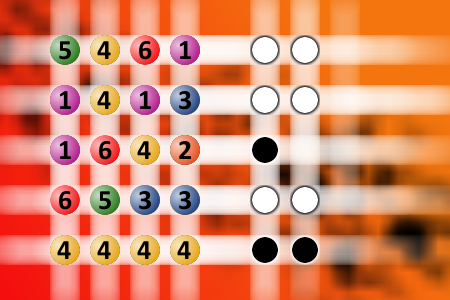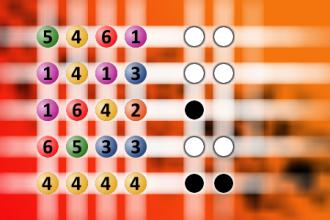Find the right combination
The computer chose a secret code (sequence of 4 digits from 1 to 6). Your goal is to find that code. Black circles indicate the number of hits on the right spot. White circles indicate the number of hits on the wrong spot.Correct answers: 40
The first user who solved this task is Thinh Ddh.
#brainteasers #mastermind

Soda Machine
One day a blonde went up to a soda machine, put in some money, and a soda came out. She got really excited and started to put more money into the machine. The more and more she did it, the more the soda came out.
After a while someone walked up to her and asked if they could please get a soda.
The blonde looked at them angrily and said: "Get out of my face, I'm winning!"

